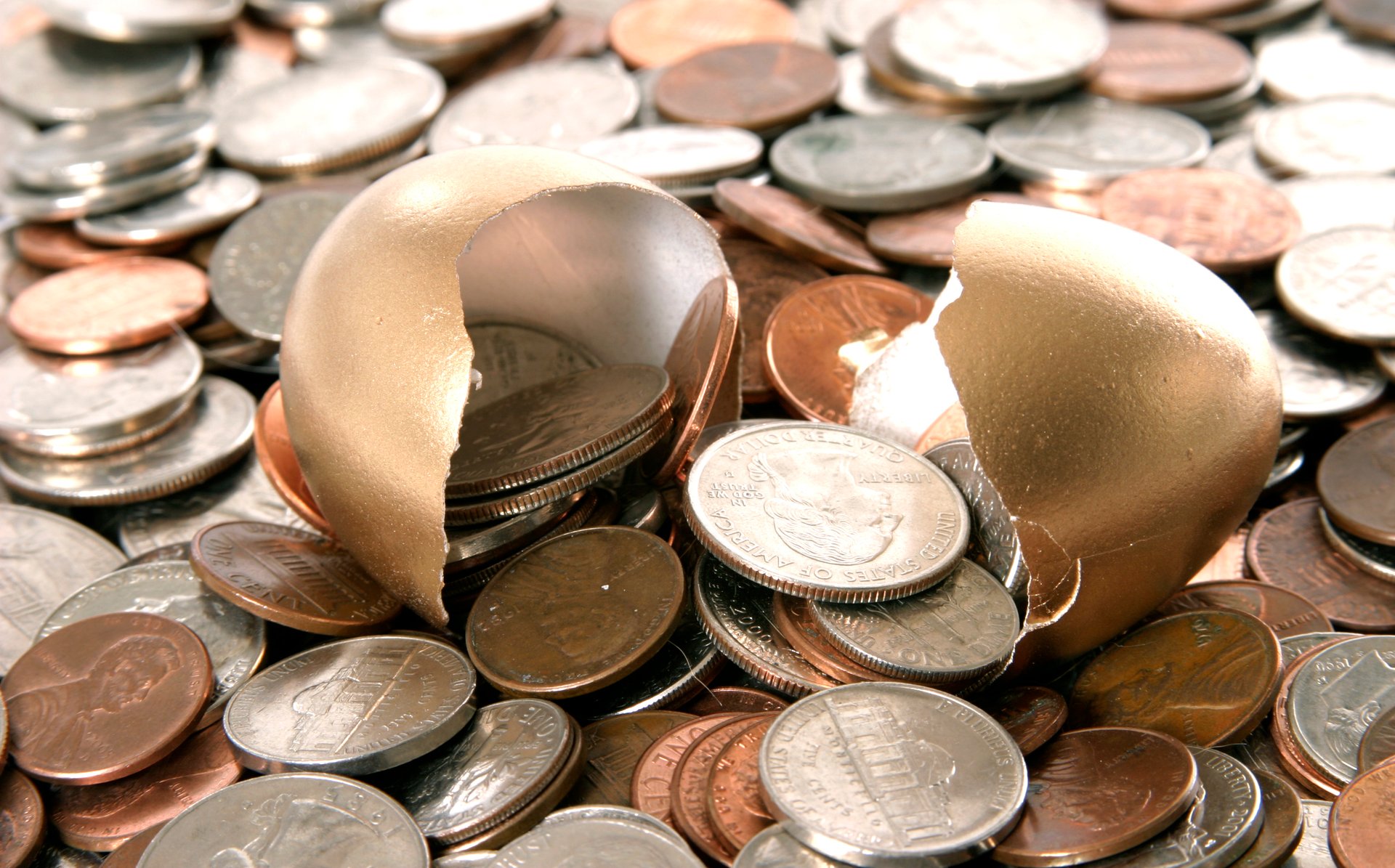
Editor’s Word: This story comes from Wealthramp.
Billionaire Warren Buffett nonetheless lives within the Omaha home he purchased in 1958 for $31,500. Mega-star Keanu Reeves is price over $350 million however says he’s happier residing a modest way of life quite than in a Hollywood mansion.
In actual fact, Reeves didn’t personal a house for a few years after he turned a well-known, high-paid actor. And Virgin Group mogul Richard Branson admits he doesn’t waste cash on possessions and garments.
“The concept of getting a possession that’s there simply as pure luxurious, and isn’t really paying its payments, is one thing which I’d be embarrassed about.” Branson informed The Guardian in a 2002 interview.
Being frugal and residing beneath their means has helped among the world’s wealthiest folks construct their wealth. Residing a smaller way of life is a private selection every of us makes (consciously or unconsciously) from the day we begin residing on our personal after which all through the remainder of our lives.
What does it imply to reside beneath your means? To place it merely, it’s frequently spending lower than you earn. It turns into a behavior or a conduct sample that enables you to withstand shopping for issues you might have considered trying however don’t want and placing extra of your revenue into your financial savings and retirement.
The Advantages of Residing Beneath Your Means

There’s a payoff to residing beneath your means. Most of all, you scale back stress over cash points. You’ve additionally put your self ready to not reside paycheck to paycheck. Residing debt-free offers you energy since you at all times know if/if you do need to borrow cash, you’ll be capable to negotiate the perfect phrases on a mortgage.
However there’s extra to residing frugally …
It supplies monetary safety

Residing paycheck to paycheck could cause you to lose a variety of sleep worrying about your funds. However in case you are financially frugal about what you spend your cash on, then it’s best to have extra money accessible to repay your money owed, save for emergencies, and construct your nest egg for retirement. You’ll eliminate a lot stress and fear in case you are extra financially safe.
It lets you construct an emergency fund

For those who reduce on pointless bills like garments or $5 lattes on the native espresso store, you’ll be able to allocate the cash you save into an emergency fund. Consultants advocate that you simply sock away not less than one to a few months of bills in an emergency fund in case one thing sudden occurs, like shedding your job or having a serious expense you hadn’t deliberate on.
It means that you can construct your wealth

By spending much less on consuming out at eating places or shopping for the newest and best mobile phone, you’ll be able to make investments the cash you save to develop your wealth. A method to do that is by contributing extra to your 401(ok) or different retirement accounts. Seemingly small bills add up. Being aware of bills additionally means it’s possible you’ll develop into extra vigilant in regards to the charges you pay everytime you make an funding.
Studying to “audit” funding bills reminiscent of administration charges can prevent actually tens of hundreds of {dollars} over a lifetime of investing. While you swap your priorities from spending to saving, you’ll get extra management over your future.
Residing beneath your means is extra about conduct than finance. Age and stage of life don’t actually matter. If this way of life appeals to you, there are methods that you would be able to take to get on the trail of residing a financially frugal life.
Listed here are some methods for residing frugally …
A month-to-month finances units you free

Among the best issues you are able to do to reside frugally is to set a finances on your month-to-month bills and persist with it. Sarcastically, putting limits in your spending and monitoring your bills means that you can free your thoughts of questions on whether or not it’s possible you’ll be overspending.
There are a number of budgeting packages, apps, and fashions that you need to use to observe the place you’re spending your cash and the place you would possibly be capable to reduce. For instance, some budgeting specialists advocate the 50/30/20 rule, the place 50% of your revenue goes to requirements like lease and utilities, 30% goes to needs like eating out and garments, and 20% goes into financial savings or paying off money owed.
Monetary guru Dave Ramsey has been selling the You Want A Price range (YNAB) budgeting app, and I’ve personally test-driven (and endorsed this digital device), which provides a function for each greenback you earn. With zero-based budgeting, you have to be left with zero after you pay all of your bills, together with wants, needs, money owed, financial savings, and retirement.
Minimize pointless bills

Analysis reveals that the typical grownup within the U.S. spends virtually $1,500 a month on issues thought-about “nonessentials.” These pointless bills can embrace eating out, costly garments, a number of streaming companies or subscriptions, expensive health club memberships, and alcohol.
With present inflation charges nonetheless hovering round 7% yearly, these on a regular basis luxuries are taking an excellent greater chunk of your pockets. You don’t need to deprive your self of a vibrant social life, however it’s possible you’ll be stunned by how a lot it can save you simply by chopping again on a few of these prices.
Repay money owed

In case you have a variety of bank card debt, a lot of your month-to-month funds go to pay the curiosity on these playing cards. With some bank cards charging as a lot as 26% curiosity, paying a bank card off can take years for those who solely make the minimal funds.
Make a plan to repay your bank card money owed, so you will have extra money to save lots of and make investments. One technique for paying off your playing cards is the avalanche technique, the place every month, you pay probably the most in your card with the very best rate of interest and minimal funds in your different playing cards. When you pay that card off, do the identical with the cardboard with the second-highest rate of interest.
Downsize

If a big chunk of your revenue goes to housing or your automotive, it’s possible you’ll think about downsizing. For those who reside in a five-bedroom dwelling, however all of your children have grown and moved out, it can save you cash shifting to a smaller dwelling. Residing in an city space could also be good since you’re near the whole lot, however it’s possible you’ll get extra on your cash on housing for those who transfer exterior the town limits.
It’s also possible to save so much by not having a automotive cost. Your automobile is a type of transportation to get you to the locations you might want to go, not a logo of your standing. It’s foolish to drive round in a brand-new automotive if you battle to make ends meet.
Am I Turning into a Cheapskate?

Similar to anything, residing beneath your means entails discovering the steadiness to really feel extra comfy about cash. Taking the frugal way of life to its excessive – counting each penny and residing in concern of spending your personal cash isn’t essentially wholesome and possibly received’t make you (and people round you) very blissful.
There’s frugal, after which there’s low cost and being too restrictive would possibly rob you of the job of collaborating in group actions the place you need to chip in or really feel beneficiant sufficient to donate to charitable causes.
Backside Line

For those who fear about your future monetary safety, now is an ideal time to reevaluate your spending and take a look at methods to chop again on pointless bills. For those who’re a guardian or grandparent who has life expertise, it’s sensible to take a seat down along with your family members and discuss how they will discover some peace of thoughts that they’re ready for any unknowns the longer term could deliver.









